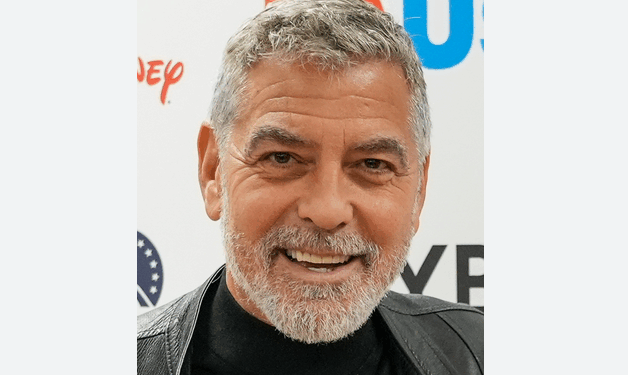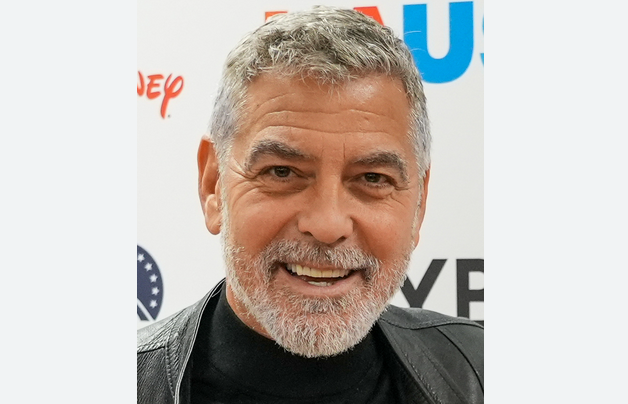The campaign to normalize assisted suicide continues to blur the line between care and killing. Not surprisingly, Hollywood, which has overwhelmingly tried to shape public attitudes by depicting assisted dying as part of a person’s right to autonomy, is playing its typical role in supporting this manipulation.
Soon, audiences will see George Clooney and Annette Bening star in a film recounting the story of a woman who traveled to Switzerland to end her husband’s life after he developed Alzheimer’s disease. The movie is emblematic of a troubling trend: the entertainment industry portraying assisted dying and euthanasia as a compassionate, even a virtuous choice.
Recent celebrity endorsements of this practice bolster this narrative. Irish-American actor and film producer Pierce Brosnan has expressed support for the legalization of assisted dying in the UK, with Dame Helen Mirren voicing her agreement.
Click Like if you are pro-life to like the LifeNews Facebook page!
These high-profile figures give assisted suicide cultural legitimacy and contribute to the idea that ending a life prematurely, for the sake of apparent “compassion,” is a welcomed solution to human suffering.
Films like Me Before You and Million Dollar Baby present assisted death in emotionally charged ways, often as a “caring” or logical end for those with a severe disability or even for those who are “suffering,” whether their suffering be physical or emotional.
That duplicity can shift – and indeed, has shifted – public perception: When audiences repeatedly see death framed as dignity, relief, or freedom, it legitimizes assisted dying as an option rather than exposing it as a tragedy.
But not all influential public figures agree. Author J.K. Rowling recently announced she no longer supports the legalization of assisted suicide, having experienced a change of heart after her husband, a doctor, opened her eyes to the profound moral risks of coercing sick or vulnerable people.
With her reversal, Rowling stands as a rare but important example of moral clarity in a culture increasingly inundated by emotional storytelling, self-worship, and celebrity persuasion.
Yet, for every story presented on the big screen or lauded by the media, real-life examples of courage, perseverance, and dignity in the face of illness often go unnoticed as true heroism, love, and resilience rarely reach the cultural spotlight.
Consider Lauren Hill, a basketball player at the College of Mount St. Joseph in Cincinnati. Diagnosed in 2014 with an inoperable brain tumor, she faced unimaginable odds. Rather than becoming a symbol of how life should be ended, she became a beacon of courage and hope. Hill played college basketball despite her diagnosis, inspiring teammates, fans, and an entire nation. Her story reminds us that life, even when burdened by disease, holds intrinsic value far beyond convenience.
Similarly, there are extraordinary individuals like Alex Roca Campillo, born with cerebral palsy, who made history in 2024 by finishing the Barcelona Marathon in record time for the disabled category, proving that there are people for whom serious physical challenges are not a limitation, but a testament to human strength.
And who could forget Team Hoyt, the father-son duo whose decades-long partnership in marathons and triathlons demonstrated the transformative power of love and devotion? Dick Hoyt’s commitment to his son, Rick, who also had cerebral palsy, stands as a living testament to the truth that compassion and faith far outweigh ending a life to escape suffering.
These stories stand in stark contrast to the sanitized, Hollywood-friendly narratives about assisted dying. They underscore a crucial reality: Life, even in its most medically vulnerable forms, possesses intrinsic dignity.
For years, I have chronicled how discretionary death is becoming increasingly accepted, almost routine, in our healthcare system. Hospitals, policies, and public opinion have shifted to view certain lives – the brain injured, the elderly, the disabled, those with chronic illness – as less worthy; and the option of “assisted dying” is viewed as a form of empathy.
For decades, U.S. healthcare policies, shaped by hospital administrators, lawmakers, and medical ethicists, have quietly undermined life-affirming treatments, particularly by redefining feeding tubes that provide food and water – a universal fundamental right – as “medical treatment.”
Decisions increasingly fall into the hands of bureaucrats and healthcare systems driven by financial considerations, rather than remaining with patients, their families, or surrogates; this places an untold number of Rick Hoyts and Alex Roca Campillos at risk.
Here is where the family, led by the father, remains the fundamental protector of life. Love within the family calls upon us to care for each member, through illness, disability, aging, addiction, or emotional struggle. Ending a life prematurely, regardless of circumstance, is the antithesis of the family’s obligation as a sanctuary of care, protection, and unconditional love.
Changing this nihilistic worldview requires more than policy reform. It demands a return to the truth that undergirds human dignity: Life is sacred, given by God. We were created in His image and likeness, and human life deserves protection from conception to natural death.
Christ’s teachings remind us that love and mercy are not measured by the absence of suffering, but by how we care for the weakest among us, even when caring comes at a cost or is unpopular.
The ultimate act of love is not to end a life prematurely but to walk alongside that life, being fully present, fully human, and fully committed to the value God has placed in every person. It is in these moments that our faith becomes visible, and Christ’s light shines most brightly.
LifeNews Note: Bobby Schindler and his family work as patient advocates, establishing the non-profit Terri Schiavo Life & Hope Network in honor of his sister, Terri. Click here to learn more about the Life & Hope Network.












